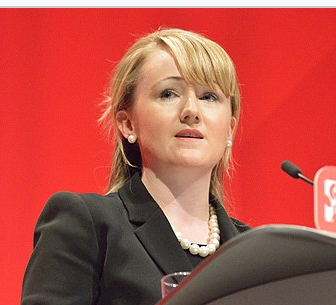This is a cross-post by James Snell
After a humiliating defeat for his party at the polls in the British General Election, Ed Miliband may be gone, but his legacy continues to shape events in Westminster – and not for the better. The losing Labour leader has left his party an immense and almost intolerable burden. It falls to those left standing – unlike former Shadow Chancellor Ed Balls, who lost his seat amid the debacle – to pick up the pieces and begin once again to rebuild the Labour Party.
Foreign policy, it seems, occurs very low down indeed in their list of priorities – which includes such momentous tasks as reversing the electoral rout in Scotland, reconstructing the decimated Labour leadership, and attempting once again to engender an image of economic competence, which for nearly ten years has eluded the party and those in most desperate need of it.
The new Conservative majority government, too, has little to gain by beginning the new Parliament with anything resembling a thoughtful and thorough examination of foreign affairs. As I have written before, the Tory leadership even before the election was of the opinion that foreign policy could offer the party little in terms of votes; and no one when surveying the post-election scene can see any reason to think or act otherwise. Labour, after all, lost the confidence of the public on the essential issues: it was afflicted with an obvious and unapologetic lack of economic acumen; the perception of being ‘soft’ on those who take the welfare system for a ride; and a seeming inability to arrest the inexorable, catastrophic rise of the SNP. It was not David Cameron’s action or lack of it in Europe and the wider world which made the difference – rather, thoroughly domestic concerns predominated in the minds of those who voted for the Conservatives in unpredictably large numbers, taking every pollster by surprise.
Next to those matters, international matters hold little appeal, especially to a political class of sorts whose thoughts and concerns are increasingly directed by what can be discerned from the daily opinion polls; and those at the top made little effort to reverse this trend. This is where we return to the unfortunate Mr Miliband. An intellectual by taste and an oddity by nature, Miliband was at his most successful when on home territory and in front of a friendly crowd. His ideal audience needed no convincing about the merits of taxing the rich to supplement the National Health Service. But the country as a whole needed more than that, so Miliband began to supplement his socialist ideology with dashes of political opportunism, and it is this category into which foreign policy was flung.
Like a weathervane, the Labour Party under Miliband swung in whichever direction met with the most popular approval; and like that instrument, the Labour leader and his team were content slavishly to follow the weather, not to engage in the more politically complex process of making it.
This opportunism can be seen in Labour’s contradictory voting record, which was seemingly more determined by opinion polls than morality or the national interest. Miliband followed David Cameron in calling for a no-fly zone over Libya in 2011, raising only minor opposition to the operation which followed. He and his party voted against intervention in Syria in 2013, later using this dark episode to score political points during a television debate in the election campaign, and he supported David Cameron in voting for airstrikes against the Islamic State in Iraq, but not in Syria – the source of its revenue and geopolitical strength (this after several British hostages had been brutally beheaded by the group and there was a clear public majority in favour of such action). Finally, and brazenly, Miliband used the occasion of a speech at Chatham House during the election campaign proper to criticise David Cameron’s handling of the Libyan intervention, a course of action he and his party endorsed at the time.
Apparently Labour strategists thought that, if they remained rigidly on the ‘right side’ of public opinion in this particular field of policy, it would make up for taking more unpopular stances on the home front. And apparently they also thought that no one would notice. Both of those assumptions have been entirely disproven; yet, in the aftermath of an election criticised from all sides as unexciting, in which politicians largely played safe for fear of making some tactical blunder or other, this modus operandi – which has become something of an archetypal Labour position – is unlikely to change.
Foreign policy remains an area of governmental activity only where votes can be lost, many believe, and consequently politicians to a man will likely avoid it in favour of less contentious topics of discussion. That this is a tragedy in need of remedy does not seem to have occurred to anyone – and even if it has, no one is brave enough to say, or do, anything about it. Britain’s politicians are willing to sacrifice our place in the world – and all the attendant responsibilities and obligations which a first rank nation must expect – for a quiet life. It is very a great shame, and it exacerbates the extent to which Britain appears to be retreating from responsibility, both in its European and global manifestations.
In the case of Labour this record is inconsistent and hypocritical and deeply shallow. (And the Conservatives themselves are not immune from it; David Cameron meekly gave up the prospect of protecting the Syrian people from war crimes perpetuated by chemical or conventional means after what was only a fairly narrow parliamentary defeat on the matter.) Even though the primary author of this policy – Miliband – has effectively departed the scene, the Labour Party is likely to continue on this saddening trajectory.
Ed Miliband resigned the day after his party’s trouncing at the hands of the electorate, but his legacy, for good or for ill, lives on. With the remaining Labour leadership candidates too preoccupied with their internecine struggles to care about foreign policy, and the Tory government secure in its domestic supremacy, there sadly seems little chance of anyone in British political life taking the initiative in international affairs.


